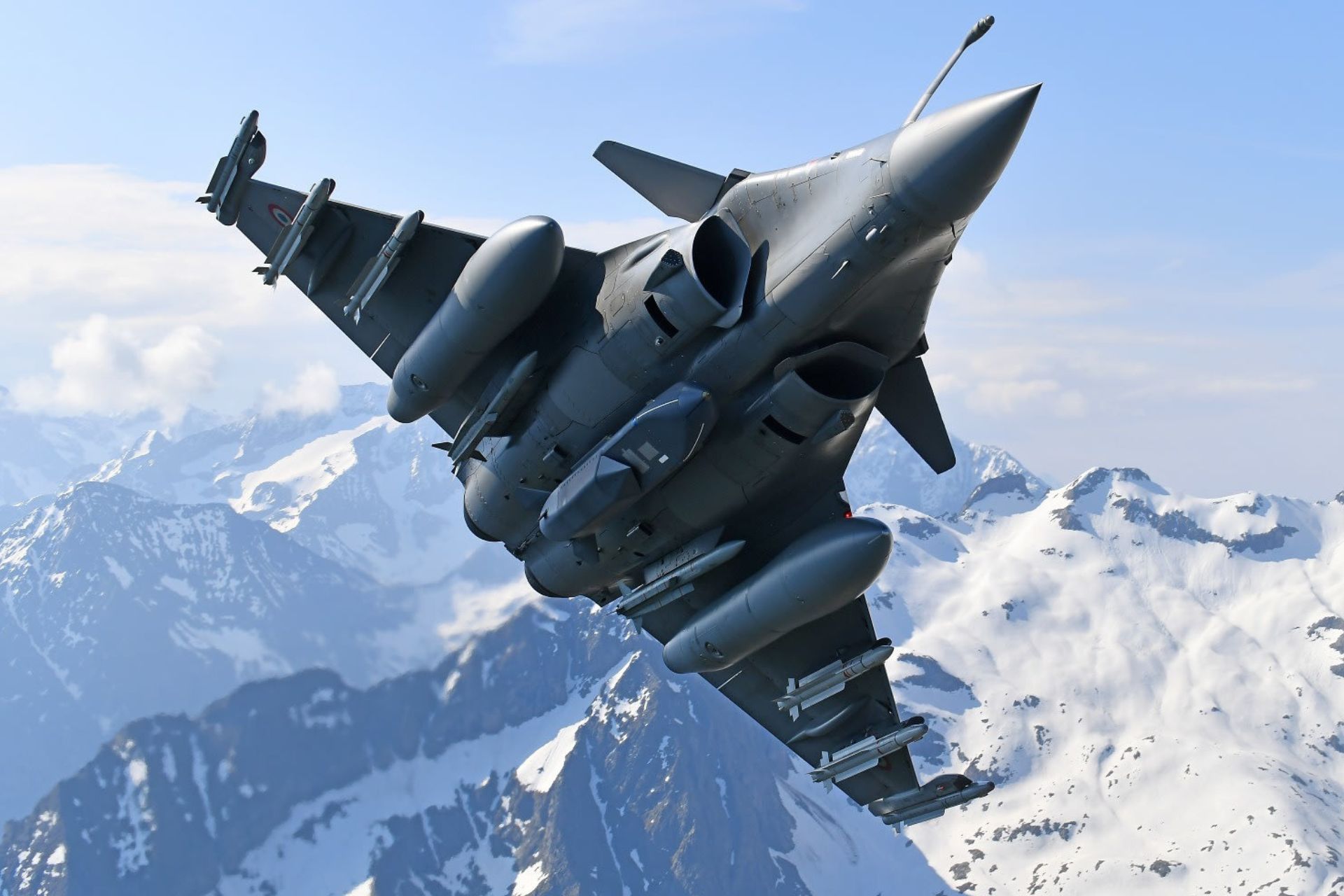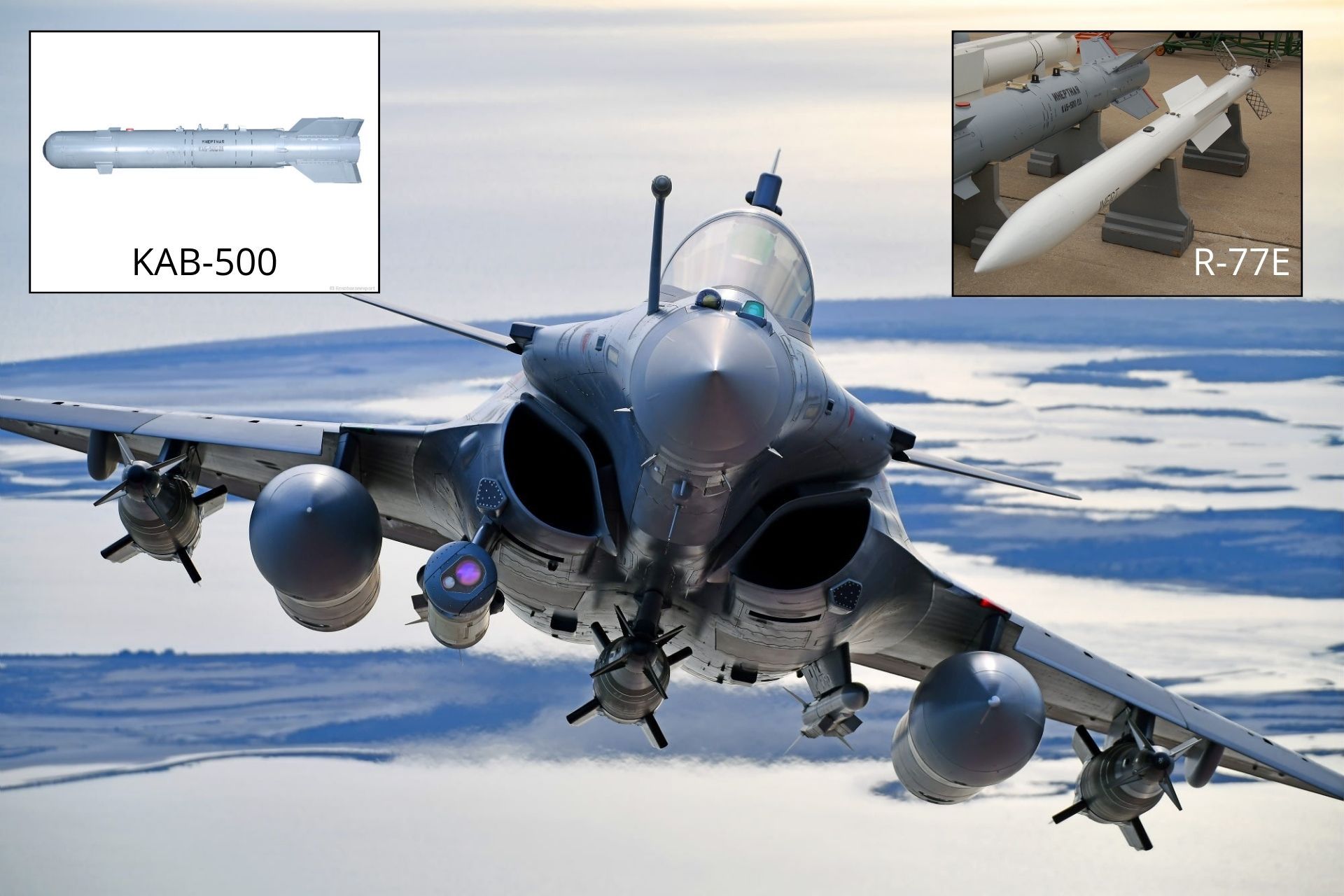Breaking News
France and Serbia Finalize 12 Rafale Fighter Jets Deal Amid Concerns Over Potential Technology Leaks.
On August 29, 2024, in Belgrade, a historic agreement was finalized between Serbia and France, marking a significant turning point in defense relations between the two nations. The signing of this contract, estimated at 3 billion euros, for the acquisition of 12 Rafale fighter jets by Serbia, took place in the presence of French President Emmanuel Macron and his Serbian counterpart, Aleksandar Vučić. This agreement, part of Serbia's broader efforts to modernize its armed forces, represents more than just a military transaction. It reflects complex geopolitical considerations and strategic shifts that could have far-reaching implications across the Balkans.
Follow Army Recognition on Google News at this link

The delivery of 12 Rafale jets, including nine single-seat and three dual-seat models, all in the advanced F4.1 configuration (Picture source: Dassault Aviation)
The contract, signed by Serbian Defense Minister Bratislav Gašić and Dassault Aviation CEO Éric Trappier, includes the delivery of nine single-seat and three dual-seat Rafale jets, all in the latest F4.1 configuration, at a cost of 250 million euros per aircraft. The selection of this advanced standard demonstrates Serbia's intent to equip its air force with cutting-edge technology. The first jets are expected to be delivered by 2029, providing Serbia with time to prepare for their integration into its defense infrastructure while continuing to operate its Soviet-era MiG-29s.
The Rafale, often regarded as one of the most versatile and capable fighter jets in the world, represents a strategic asset for Serbia. Capable of performing a wide range of missions, from air superiority to deep strike, reconnaissance, and interception, the F4.1 standard Rafale is equipped with advanced electronic warfare capabilities. It features an AESA (Active Electronically Scanned Array) RBE-2 radar, offering enhanced long-range target detection, and the SPECTRA electronic warfare system, designed to counter modern threats, whether they originate from Russia, China, or Western powers. Additionally, the Rafale can carry up to 9.5 tons of armaments, doubling the payload capacity of the 14 MiG-29s currently in service with the Serbian Air Force.
Belgrade's choice of the Rafale extends beyond its technical merits. It aligns with a broader strategy to strengthen Serbia's military sovereignty while diversifying its sources of arms procurement. For several years, Serbia has sought to modernize its armed forces, partly in response to ongoing regional tensions and security concerns related to the situation in neighboring Kosovo, with which relations remain strained. The Rafale, as a fourth-generation fighter jet, not only enhances Serbia's deterrent capabilities but also allows it to engage more closely with NATO countries, despite its traditional neutrality and close ties with Russia. The aircraft will be delivered without armaments, as Belgrade intends to retain its Russian missiles (including the R-27ER1 with a range of 100 km, the R-77E, the Kh-29T, and a variety of KAB-500 and 1500 bombs). To enable these to be fired from the Rafale, Dassault has collaborated with Israel's Elbit Systems.
The decision to acquire French Rafales represents a symbolic break with Serbia's long-standing reliance on Russian military technology. While motivated by considerations of modernization and operational efficiency, this choice raises questions about the future direction of Serbia's foreign and defense policies. Despite this Western acquisition, Serbia maintains close ties with Russia, particularly in religious and cultural terms, as both countries share an Orthodox Christian tradition. Moreover, Serbia has never officially condemned Russia's invasion of Ukraine, fueling speculation about its true geopolitical stance.

The aircraft will be delivered without armaments, as Belgrade intends to retain its Russian missiles including the R-27ER1 with a range of 100 km, the R-77E, the Kh-29T, and various KAB-500 and 1500 bombs (Picture source: Dassault Aviation)
Serbia's proximity to China is another crucial factor in analyzing this agreement. For several years, China has made substantial investments in Serbia under its Belt and Road Initiative, making Serbia a strategic partner in Central and Eastern Europe. Militarily, this relationship has been reflected in Serbia's acquisition of Chinese air defense systems, such as the KF-3, an export version of the HQ-22, which the People's Liberation Army has used since 2017. This system, capable of intercepting targets at altitudes of up to 27,000 meters and a range of 100 km, highlights Serbia's ambivalent policy, straddling East and West.
In this context, the sale of Rafales to Serbia has raised concerns among security and defense experts, particularly regarding the potential risks of technology leakage. The technologies integrated into the Rafale, including the SPECTRA system and the AESA radar, are sensitive components crucial to France's defense capabilities, including its nuclear forces. Serbia's close relationship with Russia, a long-standing strategic ally, raises questions about whether some of these technologies could be compromised. The French authorities, aware of these risks, have imposed strict security and intelligence-sharing conditions as part of the agreement to minimize the possibility of sensitive technology transfer.
The Rafale sale to Serbia also takes place in a tense regional context, marked by rising tensions between Serbia and some of its neighbors, particularly Croatia, which has also recently acquired Rafales to modernize its air force. The prospect of two Balkan nations possessing Rafales could alter the military balance in the region, potentially exacerbating historical rivalries. However, this agreement could also contribute to strengthening regional defense cooperation, particularly through joint training and maintenance programs, which could ultimately stabilize the region.
The relationship between Serbia and France has intensified in recent years, particularly through several military cooperation agreements and arms sales. In addition to the recent sale of 12 Rafale fighter jets, France has also supplied Serbia with various advanced defense systems. In 2019, Serbia acquired 50 portable Mistral surface-to-air missile systems, demonstrating its commitment to strengthening its short-range air defense capabilities.
Furthermore, Serbia has ordered several Ground Master air search radars from France, including three Ground Master-400 radars and seven Ground Master-200 radars. These radars, designed to enhance Serbia's airspace surveillance, reflect Belgrade's commitment to modernizing its defense infrastructure with Western technologies.
Finally, this agreement is also a significant diplomatic gesture by France, which aims to enhance its influence in the Balkans, a strategic region for European security. As a key member of the European Union, France sees this deal as an opportunity to draw Serbia closer to Europe and away from Russian and Chinese influence. Additionally, this agreement could pave the way for increased cooperation between France and Serbia in other areas, including economics, culture, and politics.
In conclusion, the sale of 12 Rafales to Serbia is far more than just a commercial contract. It is part of a complex geopolitical strategy aimed at strengthening Serbia's position in the Balkans while consolidating ties between Belgrade and the West. However, this sale also raises questions about the future of Serbia-Russia relations and the implications for regional stability. As Serbia seeks to modernize its armed forces and diversify its partnerships, this agreement could mark the beginning of a new era for the country, both militarily and diplomatically. Yet, it remains to be seen how Serbia will navigate between its traditional alliances and its new strategic ambitions, and what the long-term repercussions of this decision will be on the balance of power in the Balkans and beyond.


























